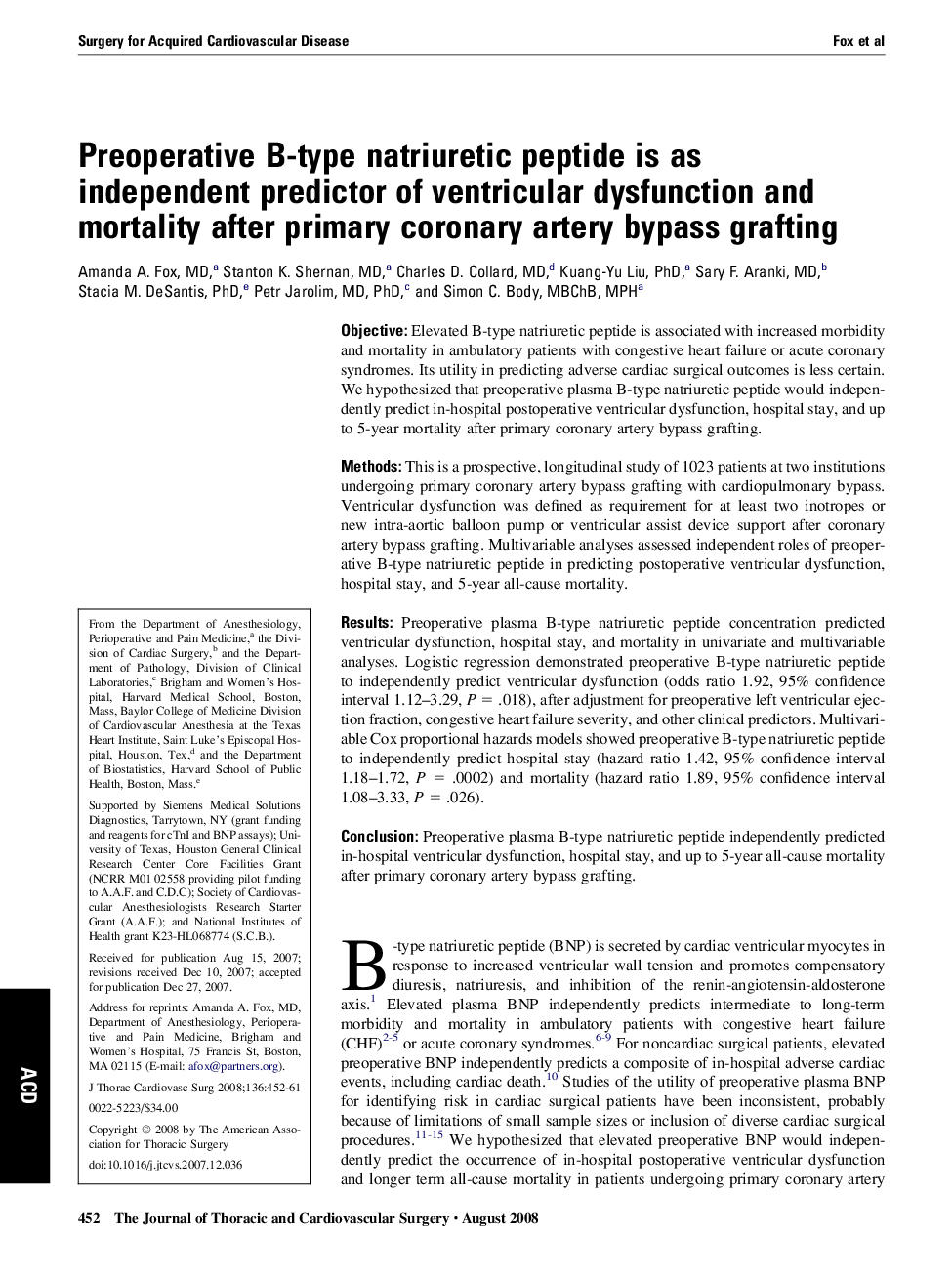| Article ID | Journal | Published Year | Pages | File Type |
|---|---|---|---|---|
| 2983107 | The Journal of Thoracic and Cardiovascular Surgery | 2008 | 10 Pages |
ObjectiveElevated B-type natriuretic peptide is associated with increased morbidity and mortality in ambulatory patients with congestive heart failure or acute coronary syndromes. Its utility in predicting adverse cardiac surgical outcomes is less certain. We hypothesized that preoperative plasma B-type natriuretic peptide would independently predict in-hospital postoperative ventricular dysfunction, hospital stay, and up to 5-year mortality after primary coronary artery bypass grafting.MethodsThis is a prospective, longitudinal study of 1023 patients at two institutions undergoing primary coronary artery bypass grafting with cardiopulmonary bypass. Ventricular dysfunction was defined as requirement for at least two inotropes or new intra-aortic balloon pump or ventricular assist device support after coronary artery bypass grafting. Multivariable analyses assessed independent roles of preoperative B-type natriuretic peptide in predicting postoperative ventricular dysfunction, hospital stay, and 5-year all-cause mortality.ResultsPreoperative plasma B-type natriuretic peptide concentration predicted ventricular dysfunction, hospital stay, and mortality in univariate and multivariable analyses. Logistic regression demonstrated preoperative B-type natriuretic peptide to independently predict ventricular dysfunction (odds ratio 1.92, 95% confidence interval 1.12–3.29, P = .018), after adjustment for preoperative left ventricular ejection fraction, congestive heart failure severity, and other clinical predictors. Multivariable Cox proportional hazards models showed preoperative B-type natriuretic peptide to independently predict hospital stay (hazard ratio 1.42, 95% confidence interval 1.18–1.72, P = .0002) and mortality (hazard ratio 1.89, 95% confidence interval 1.08–3.33, P = .026).ConclusionPreoperative plasma B-type natriuretic peptide independently predicted in-hospital ventricular dysfunction, hospital stay, and up to 5-year all-cause mortality after primary coronary artery bypass grafting.
